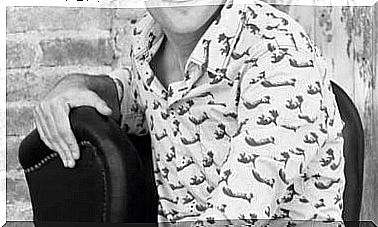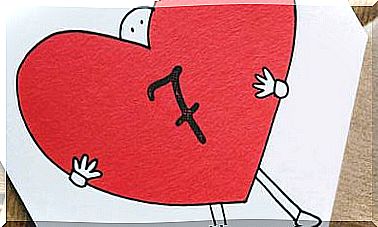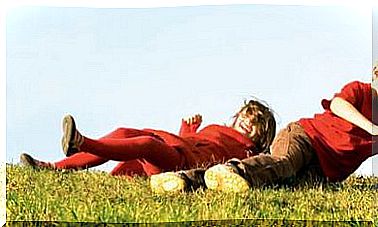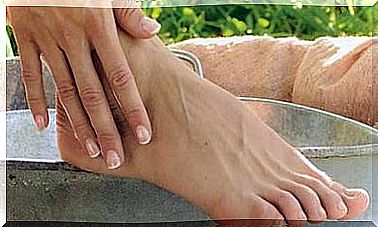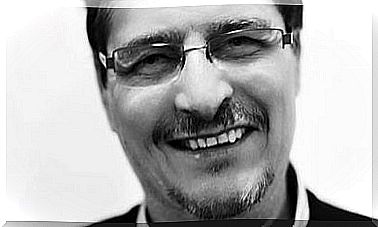“Shyness Cost Me My Job”
Through the story of a person who overcame this block, we walk the path to heal the wounds that lead us to be dominated by fear.
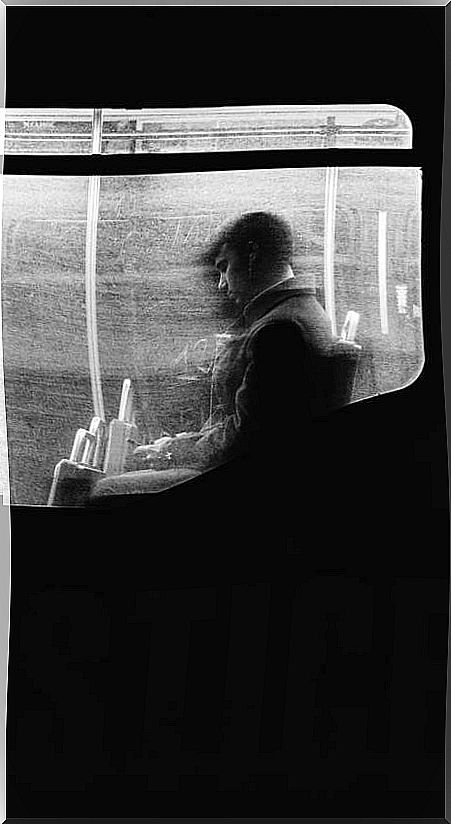
Shyness is a brake, a blockage of the natural tendency of the human being to exchange (knowledge, goods, ideas and / or feelings), communicate their inner world and socialize with other people.
Often this withdrawal arises at an early age and is consolidated as a protection mechanism to avoid threats or physical and / or psychological punishment. Over time, already in adulthood, after years of suffering from it, shyness (which we should not confuse with a personality trait of introverts) can become a great burden on the lives of people who suffer from it.
Juan Antonio’s testimony and his healing journey
Tell me, Juan Antonio, what made you decide to take the step of seeking psychological help?
I am not able to keep any job because of my shyness. Two weeks ago I was fired from my last job for not being able to speak during a meeting. I was blocked when I had to present a topic in front of my superiors.
Tell me a little more about how you experience shyness.
It is very difficult for me to have to speak in public or interact with my superiors. I’ve never liked being the center of attention, and when I have to, I lock myself out. I am very afraid of ridicule, of feeling observed. I try to avoid these kinds of situations whenever I can.
We began to work to deepen his problem and, in the fourth session, Juan Antonio came to a memory of a traumatic situation that he had lived in a boarding school where he spent several years as a child. To connect more directly with memory, we work in a state of gentle relaxation, through which it is easier to access emotions and memories.
I feel anxiety and pressure in my chest.
Let that feeling take you back in time and connect you with other moments in which you have felt something similar.
An unpleasant situation at boarding school comes to mind. I was wrong and entered the row that was not. The professor gave me a couple of hard slaps.
What do you feel when he hits you?
Fear, a lot of fear and shame. Everybody is looking at me. I can’t even cry.
How do you react? What do you do then?
When he stops me, takes my arm and gives me two cakes, I am petrified. I hold on. I feel the anxiety about being wrong. The teacher repents and asks me for forgiveness, but I am left with the guilt and the idea that I was wrong. He hit me for not being attentive.
What is going on in your head?
Perhaps that is the origin of not trusting myself. Because of my mistake I am a source of ridicule. They laugh at me. I think I want to cry and I can’t. I am left with heartbreak and blockage.
“When I have to give my opinion, I feel the same fear of being ridiculed as when I was a child”
And now, in your life, do you feel something similar at any time?
When I have to make a decision or give my opinion. I don’t want to be exposed. I feel the same pressure on my chest. It increases until it blocks me. Many thoughts cross my mind that prevent me from concentrating. “What do I have to do or say so as not to look ridiculous?” And in the end, I don’t say anything.
Let’s go back to the image of the boy in boarding school.
I feel insecure and helpless. I see the teacher’s reaction unfair and disproportionate. It has caught me totally off guard and there is nothing I can do.
What does the boy keep from that whole scene?
It forms like a knot in my stomach, a bag where I keep the fear of ridicule, blockage, anxiety …
If you could go talk to that kid, what would you say to him?
I would explain that the error was not so important. It has not been as serious as the punishment of the slapping. The one who made a mistake was the teacher. Now I see it differently. I would like to take that bag and throw it away, into the garden, very hard.
Now you can. Help the child to throw that bag very far.
I feel more unburdened, as if I have released my fury.
How does the child feel? What do you do now?
I feel more secure, without fear of what they will say. I stop, admit my mistake and return to my site without major problem. I have reacted and I go back to my line. I’m a little nervous, but nothing more. I look at the teacher, as in a duel of glances, he stops and reconsiders. It doesn’t feel so superior. I believe myself just like him, even more. I feel fuller, more capable and more self-confident.
We cannot change the past, but we can change the point of view on it.
Now you can observe that scene from another perspective that helps you get rid of that negative charge. And surely you can bring you an important learning for your present.
Now I can face the problems, take responsibility for the mistake and learn again. I feel so much more secure.
Feel that security. Imagine that you give it a color to remember it whenever you want.
It would be a light green. I see myself with more security when I have to make a decision or respond to something important in front of a superior.
We continue working, building trust, and we go to another important session in which the problem is no longer at school, but within the family. Juan Antonio remembers a scene in which, when he was very young, his grandmother punished him for wetting the bed.
I remember my grandmother, who passed away when I was 7 years old. I was living with her for a season, between the ages of 3 and 4. I see myself as a child, sitting in a rocking chair. I have an uncomfortable feeling, it’s like I’m grounded. I’m not happy there.
Take a deep breath and let yourself go, to connect much more with that memory.
I visualize how the child is sad. Do you feel lonely. He seems punished for doing something wrong. He shows me a wet bed. He has urinated at night and is punished. He is in the rocking chair and the grandmother will not let him out, but he does not know how to avoid urinating more.
What has happened?
It is not your home. Your grandmother’s house is very big and old. He is afraid of the dark. For not getting up, he holds on and, in the end, he can’t take it anymore and his pee escapes. In the morning he wakes up in anguish, knowing that he is going to get caught. Grandma yells at him in front of his cousins.
How do you feel at that moment?
Very guilty and ashamed because I know I have done something wrong. She has ridiculed me and that is why I also feel a bit of hatred towards older people. But I keep quiet. I hold on. I am on loan there, it is not my house and my parents are not there.
What happens, then, with the child from that moment on?
I am closing myself little by little. I make a shell and try not to show anything. This has always been my way of dealing with things. Now I react the same as the child. I have a hard time dealing with negative comments. I am not able to defend myself.
In addition to the shame and guilt, you told me that you felt alone at your grandmother’s house. Where are your parents?
They haven’t told me much about that time. I think they worked outside and I had to stay with my grandmother. They told me that she was the one who taught me not to pee but she didn’t do it the right way.
How would you have liked to be treated? What do you think you would have needed?
I see that the child should not be there, he should be with his parents. The child would like them to be the ones to help him overcome the issue. I would talk to my parents and tell them that I want to go home and learn there, with them. I think that, with my parents, I would not feel so much shame or fear of punishment.
Imagine the two scenes and feel the differences between one and the other.
I would put the scene of my parents covering that of my grandmother. I repeat that I don’t want to be with her, that I want to go home. I tell them that I don’t care if they work, a child has to be with his parents. They should have found a way for him to be with them.
And what would you say to your grandmother?
I would tell him that this is not the way to treat a child, that he should be more understanding and think that I was lonely and afraid of the dark. He would say it angrily, raising his voice. He had no right to treat me like this.
How do you feel after having expressed what you felt?
Having released everything I had saved, I see the happiest child, with the brightest face.
What do you want from now on? What new mandate do you want in your life?
Make myself worth more. Being able to speak and express my opinions without caring what others think. Now I feel more enlightened, with more predisposition to defend myself.
So how can you take advantage of all this that you are learning today in your daily life?
I see that now there is no point in keeping quiet. There is no more danger. No one is going to punish me or hit me if I’m wrong. If they kick me out of a job, I’ll find another one, but I’m not going to let them kick me out for keeping quiet. That will not happen again.
How to free yourself from the yoke of shyness?
Analyze if ours is, in fact, introversion
Introversion is a personality trait shared by those who do not need to be around people to feel good and who, in fact, are more comfortable in quiet and introspective situations than in tumultuous meetings. However, not seeking social relationships is not indicative of shyness.
Identify the source of the problem
The problem of excess shyness arises when, due to an accumulation of negative experiences, a person closes in on himself to the point of not being able to express what he thinks or feels. In social situations, he blocks himself in such a way that he can even go to the extreme of not defending himself when he suffers some type of injury or aggression.
It is convenient to identify those experiences that marked us.
Find strategies to deprogram it
Being aware of the circumstances that led to this seclusion in the past helps to deprogram the negative isolation response.
The armor that we created at the time to protect ourselves and survive in those adverse experiences no longer makes sense in our present. Nowadays, since it only causes us problems, we have to work to get rid of this armor that once helped us survive.
Becoming an agent of your own change
The change comes when the person understands that they no longer need to protect themselves with silence, that they should no longer be silent so that others do not get angry. After this awareness, the person is already able to defend himself in a much more assertive way, speaking and expressing his wishes
